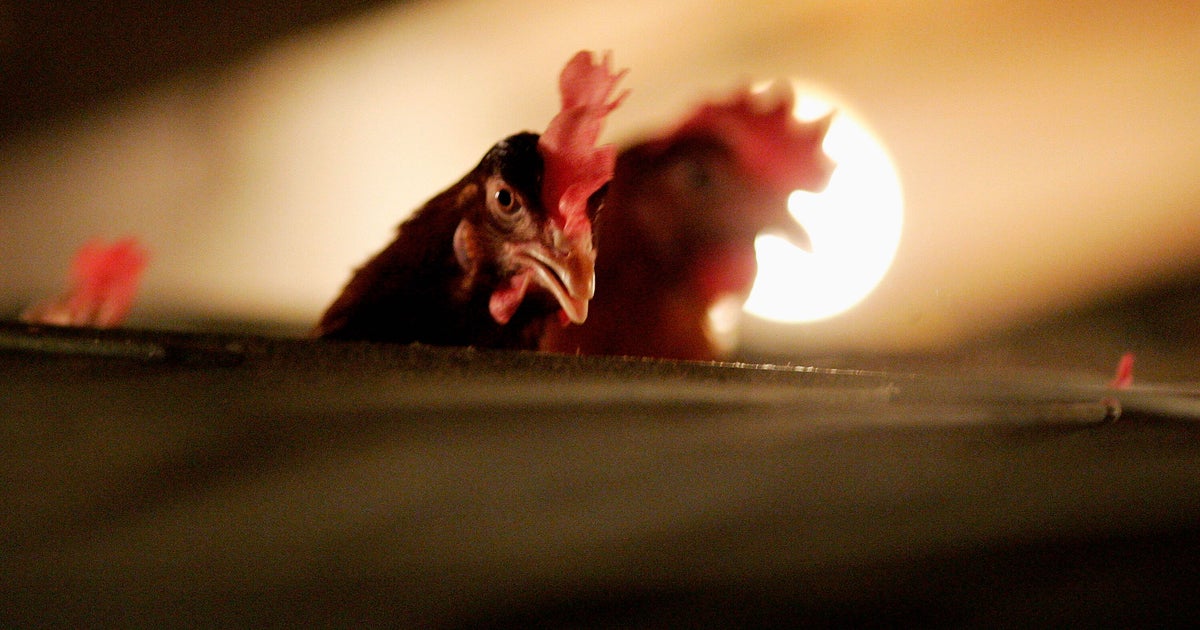Avian Flu Outbreak Leads To Egg Shortage & Price Hikes
BALTIMORE (WJZ) -- The avian flu outbreak that has led to the killing of millions of chickens in the Midwest is creating an egg shortage for much of the country.
Alex DeMetrick reports that's leading to price hikes from Maryland to Texas.
If you can't make an omelet without breaking a few eggs, it's even harder when there are fewer eggs to break. The death of huge numbers of chickens in the Midwest is creating an egg shortage. An outbreak of avian flu has forced farms to destroy whole flocks to keep the disease from spreading.
"The avian virus doesn't care what you are. It doesn't care if you're a chicken, if you're a turkey, if you're a parakeet---any sort of bird," said Wisconsin Agriculture agent Heather Schlesser.
As of this month, 46 million chickens and turkeys have been lost---80& of those egg-laying hens. Eggs that are liquified for other food products used to cost 63 cents a dozen. Now that price has jumped to $1.50. For restaurants, who buy their eggs still in the shell, the shortage is also being felt.
"Every week, eggs keep going up. Like our boss told us, four weeks ago, a dozen eggs was $1.36; up now to $2.29," said Rigo Vargas, Double T Diner. "That's a big difference in four weeks."
And the Double T Diner in Catonsville goes through thousands of eggs a day.
Stores and shoppers are also feeling the effects of the shortage across the country, although Texas seems to be getting hit extremely hard. One of the state's largest supermarket chains has begun rationing eggs to customers.
"Last week, they went up 36 cents and this week 56 cents," a store owner in Texas said.
For restaurants, the pressure of rising egg prices means either passing that cost onto customers or the business eating the loss.
"Our boss says he's going to eat the cost right now---hopefully things will go down---so he doesn't want to increase the prices," Vargas said.
Which is good news for the Double T customers, even as it risks scrambling profits the longer the egg shortage goes on.
Avian flu has not hit poultry operations here on the East Coast, but the virus has hit before---including Maryland.







